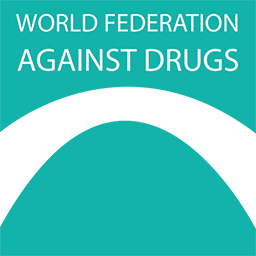During the 16 days of activism, which started on November 25th on the International Day for the Elimination of Violence Against Women and will end on December 10th on the International Day of Human Rights, the WFAD Gender Working Group is publishing statements every day highlighting issues faced by different specific populations while continuing to highlight the topic of this year: UNiTE! Activism to End Violence against Women and Girls
Gender-based violence and substance use are strongly interlinked. The negative health impact the experienced violence has on the survivor can lead to substance misuse. Additionally, substance use perpetrator often accelerates violence. Therefore, each statement, calling for preventing and eradicating gender-based violence, also calls for substance use prevention as well as sensitised and comorbid treatment.

Today we commemorate the International Day of Persons with disabilities. A day where we “promote the rights and well-being of persons with disabilities at every level of society and development, and […] raise awareness of the situation of persons with disabilities in all aspects of political, social, economic, and cultural life” (WHO n.d.). Even though approximately 15 per cent of the world’s population lives with some form of disability (UN 2021), they still face barriers, marginalisation, isolation, and discrimination. The theme of this year is: “Transformative solutions for inclusive development: the role of innovation in fuelling an accessible and equitable world”. The theme includes three thematic discussions, focusing on practical implications:
- Innovation for disability-inclusive development in employment
- Innovation for disability-inclusive development in reducing inequality
- Innovation for disability-inclusive development
Promoting the above-mentioned focus areas are important. In light of the 16 days of activism, today’s statement will focus on highlighting the gender-based violence experienced by persons, especially women, with disabilities. The gender-based violence perpetrated against women with disabilities is “often compounded by disability-based discrimination” (ADD International n.d.). Women with disabilities are often perceived as “weak, worthless, and in some cases, subhuman by their societies – and because of that face a heightened risk of domestic and sexual violence [and emotional and verbal abuse]” (Ibid). Even though the gender-based violence faced by women with disabilities is similar to what all women experience, violence does have unique forms and causes and results in unique consequences. “Women and girls with disabilities are particularly targeted by perpetrators of violence because of social exclusion, limited mobility, a lack of support, structures, communication barriers, and negative social perceptions” (Plan 2013). Often, violence against women with disabilities is perpetrated by their caregivers, either at home or in institutional settings. This creates a situation where the woman finds herself trapped with the perpetrator as she is financially and socially dependent. The perceived feeling of powerlessness can leave her isolated or result in a lack of recognising the severity of the violence.
Unfortunately, many cases of experienced violence remain invisible. Either due to faced barriers or lack of recognition of the violence due to disability discrimination. Overall, there is a lack of awareness of the issue and the stigma is immense. Besides this, sensitised services for women with disabilities are lacking. There also are inadequate policies and standards. Additionally, many programmes focusing on preventing gender-based violence do not consider the unique dangers and challenges faced by women with disabilities. Therefore, it is important to raise awareness on the issue now and call for increased participation of women with disabilities in decisions that directly affect their lives. By raising awareness and making information available, the negative attitudes can be removed as well as stigma while the woman is aware of her right and the services available. Additionally, adequate funding should be made available to provide sensitised services while policy changes become more inclusive while focusing on special needs.
References
ADD International. n.d. Disability and Gender-Based Violence – ADD International’s Approach. A Learning Paper. https://add.org.uk/sites/default/files/Gender_Based_Violence_Learning_Paper.pdf
Plan. 2013. Fact Sheet – Violence against Women and Girls with Disabilities. https://www.un.org/womenwatch/daw/csw/csw57/side_events/Fact%20sheet%20%20VAWG%20with%20disabilities%20FINAL%20.pdf
United Nations. 2021. International Day of Persons with Disabilities (IDPD), 3 December 2021. https://www.un.org/development/desa/disabilities/international-day-of-persons-with-disabilities-3-december/2021-2.html.
WHO. n.d. International Day of Persons with Disabilities. https://www.who.int/campaigns/international-day-of-persons-with-disabilities


Leave a Reply
You must be logged in to post a comment.